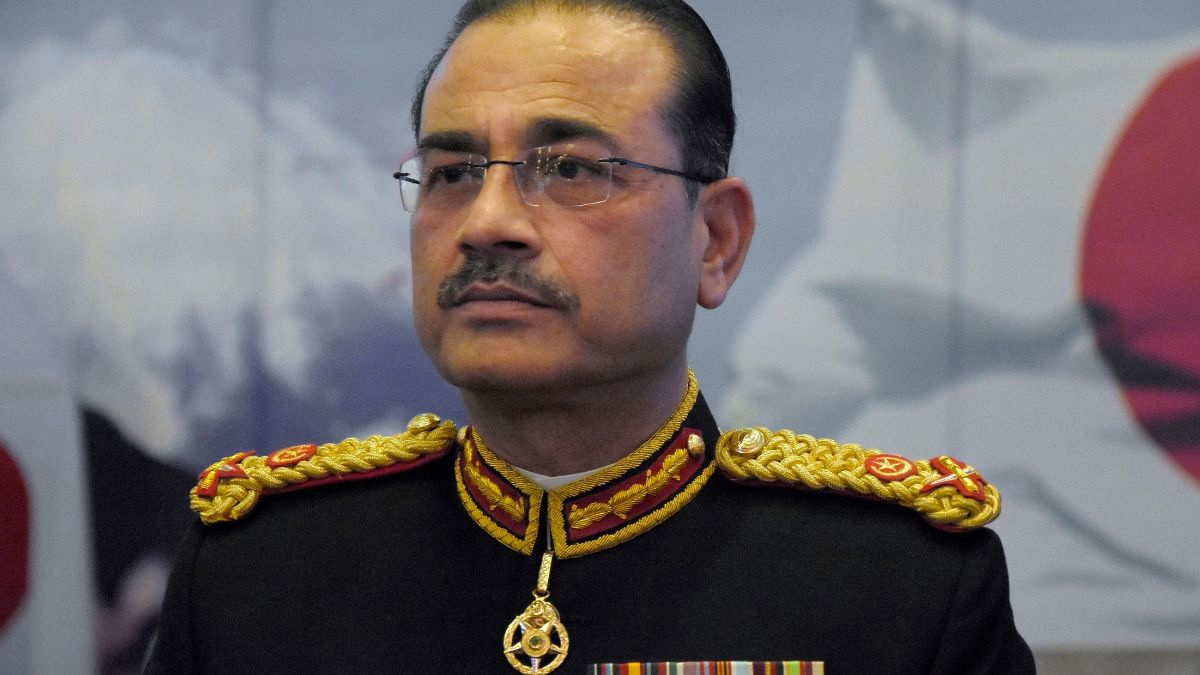Pakistan Army chief Field Marshal Syed Asim Munir’s official visit to the United States is not going as he would have hoped. He is facing the ire of protesters, who have scathingly dubbed him a “dictator”.
Munir is on a five-day official visit to the US to boost military and strategic relations between Islamabad and Washington. The trip comes just weeks after a military flare-up between India and Pakistan.
What has happened during Munir’s visit so far?
Let’s take a closer look.
Protests against Asim Munir
Pakistan Army chief Asim Munir was heckled as he reached a hotel in Washington, as per News18.
Demonstrators allegedly shouted “shame on you, mass murderer" and “shame on you, dictator" as he arrived.
A video shared on social media showed a mobile electronic billboard reading “Mass Murderer Asim Munir", with a red cross on the Pakistan Army chief’s photo.
Overseas Pakistanis have been protesting against his official trip to Washington, most of whom are supporters of former Pakistan Prime Minister Imran Khan.
According to ThePrint, accounts affiliated with Khan’s Pakistan Tehreek-e-Insaf (PTI) party have shared footage of crowds holding placards in Washington, denouncing Pakistan’s military leadership.
However, Khan’s PTI has distanced itself from the protests. “PTI has issued no such call,” party chairman Barrister Gohar Ali Khan said in a statement.
Last week, a mobile digital billboard in Times Square showed Pakistan’s top military and political leaders, referring to them “liar” and “fraud”. The truck-mounted billboard targeted Munir, PM Shehbaz Sharif, while portraying Khan as a political prisoner.
The billboard was reportedly funded by overseas supporters of Khan’s PTI.
Asim Munir hails overseas Pakistanis
Asim Munir met overseas Pakistanis in the US, lauding them as true “ambassadors” of Pakistan, according to Inter-Services Public Relations (ISPR), the Pakistan military’s media wing.
Pakistan’s army chief arrived in Washington on Sunday for a five-day official visit. During his interaction with the Pakistani diaspora, Munir acknowledged their contributions to Pakistan’s economy and global reputation through remittances, investments and higher achievements in other areas, ISPR said in a statement on Tuesday (June 17).
As per the Pakistan military’s media wing, overseas Pakistanis gathered in “large numbers” to meet Munir. They also praised the Pakistani armed forces’ “outstanding performance” during Operation Bunyan-um-Marsoos /Marka-e-Haq – a phrase taken from the Quran.
Pakistan had launched the military operation against India on May 10 after New Delhi’s Operation Sindoor.
On Sunday, Munir’s picture featured on giant digital billboards at New York’s Times Square. It was rife with messages welcoming Munir on behalf of the Pakistani-American community.
However, some social media users were quick to question who paid for the billboards.
“So who paid for that .. I mean if you don’t know these billboards are paid ones, so all you have to do is give an amount for displaying whatever you want .. so my question would be who paid and how much has been paid ? As long as my tax money isn’t used I don’t care,” Sikander Ali wrote on X.
Earlier, the White House had denied that Munir was invited to the military day parade in Washington to celebrate the US Army’s 250th birthday on Saturday.
“This is false. No foreign military leaders were invited," a White House official said on reports of Munir’s invitation.
How Israel-Iran conflict complicates Munir’s visit
Munir’s US visit could be shadowed by Israel’s conflict with Iran. Islamabad’s support for Tehran is likely to impact Munir’s hope of strengthening Pakistan’s military and strategic relations with the US.
Israel and Iran’s conflict has been going on for five days after Tel Aviv’s surprise attack on Tehran’s military and nuclear programme last week.
As per media reports, Pakistan may support Iran if an all-out war breaks out. However, Islamabad has said it is only offering Tehran “moral and diplomatic solidarity”.
The US has denied involvement in Israel’s attack; however, it remains the West Asian country’s biggest ally. American President Donald Trump has threatened Tehran with dire consequences if the US is attacked in any way.
Michael Kugelman, a US-based South Asia analyst, told Dawn that the crisis in West Asia could restrict the US engagement with the Pakistani delegation.
“Pakistan wants to cultivate US support but has condemned the Israeli strikes and is working to strengthen ties with Tehran. For Gen Munir to be in the capital of Israel’s closest ally and Iran’s primary adversary at such a tense moment could lead to some uncomfortable conversations," he said.
Kugelman said that Pakistan’s efforts to upgrade its security ties with the US will remain a “hard sell”.
With inputs from agencies
)